The ROI of high-quality AI training data
Introduction
Earlier this year, LXT published its first annual report: “The Path to AI Maturity”. The report summarizes the findings of its survey of 200 senior executives with artificial intelligence (AI) experience at mid-to-large US organizations. Two thirds of respondents were C-Suite executives.
The report reveals the current status of AI maturity in US organizations overall, as well as the investment levels and business drivers behind AI initiatives at all phases of maturity. The findings show that organizations at the highest stages of AI maturity claim that quality training data is a key contributor to their success.
This follow-on report from the same research study provides a view into the specific benefits that organizations are realizing by using quality training data as part of their AI strategies, as well as the role of third party vendors in sourcing quality data.
AI maturity of US organizations today
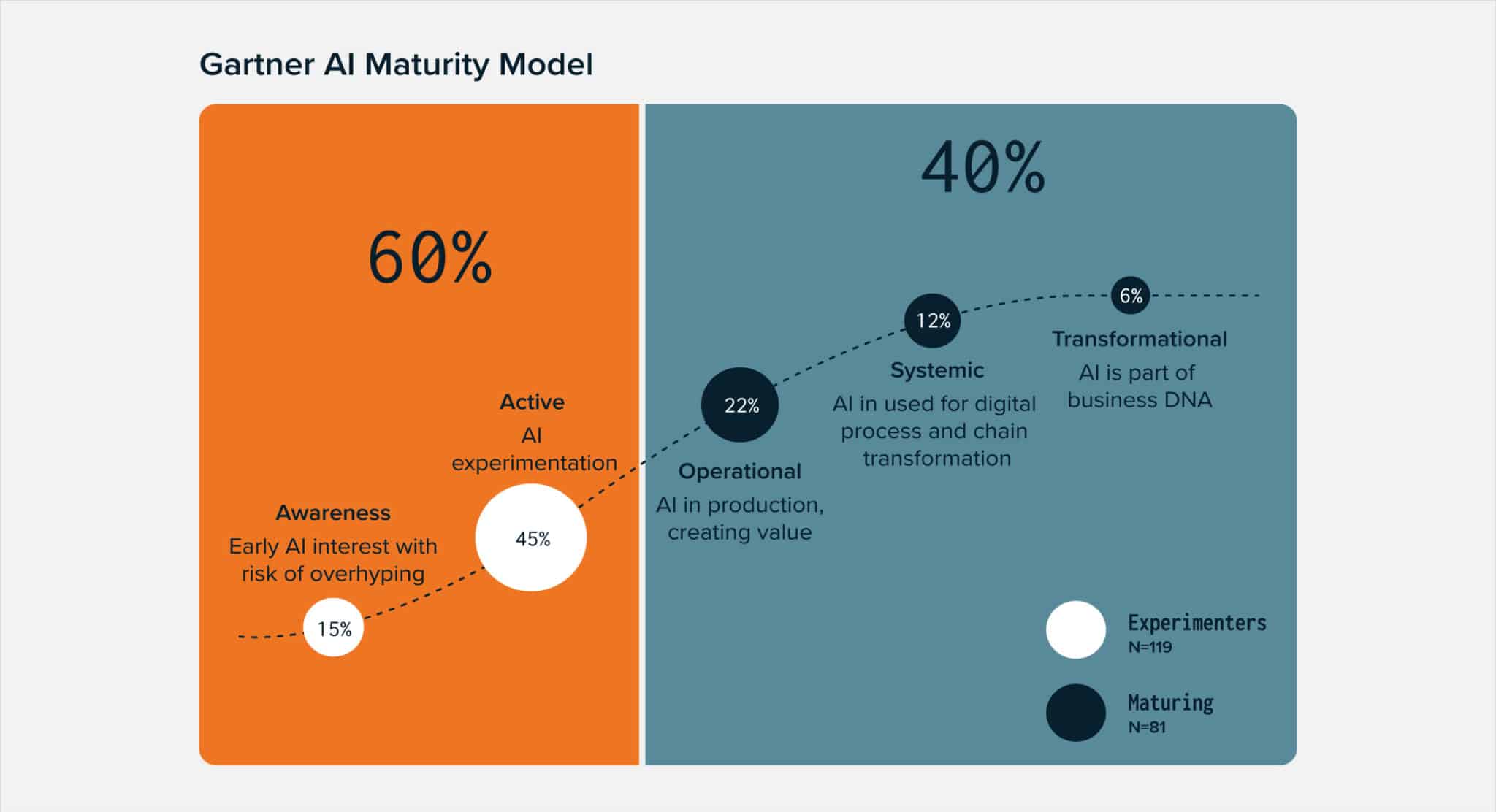
Success factors for AI
Through this research study LXT also sought to uncover the factors that are important to the success of AI strategies. Respondents were given the opportunity to select from a wide range of possible success factors, including model quality, skilled staff, and quality training data.
Results show that for companies at the highest levels of AI maturity – the Systemic and Transformational stages – quality training data is the most important contributor to AI success. For organizations just starting out in their journey, prioritizing data quality earlier in their journey could help accelerate their companies’ progress towards AI maturity.
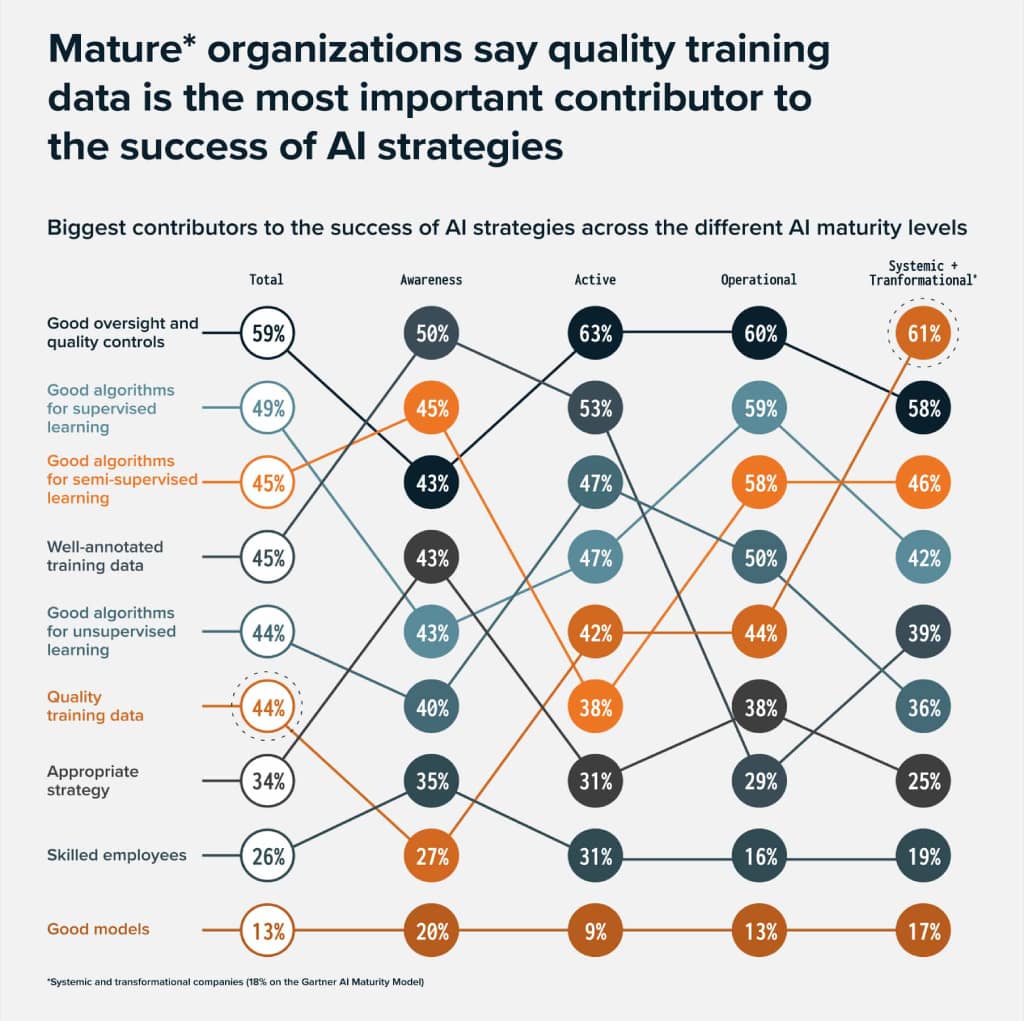
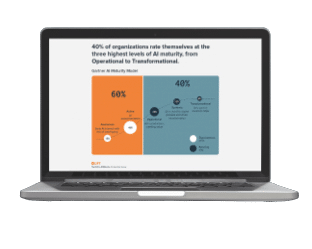
Want to read this report later?
AI training data investment
The survey findings reveal that organizations across all levels of maturity are dedicating significant percentages of their overall AI budgets to training data. Four in ten companies are allocating 70% or more of their total AI budget to training data. This can include data collection, data processing, and data annotation either internally or by third parties.
On average, businesses are investing 59% of their budget on training data. This suggests that even outside of the businesses with a larger budget, training data still makes up a majority of AI spend across companies.
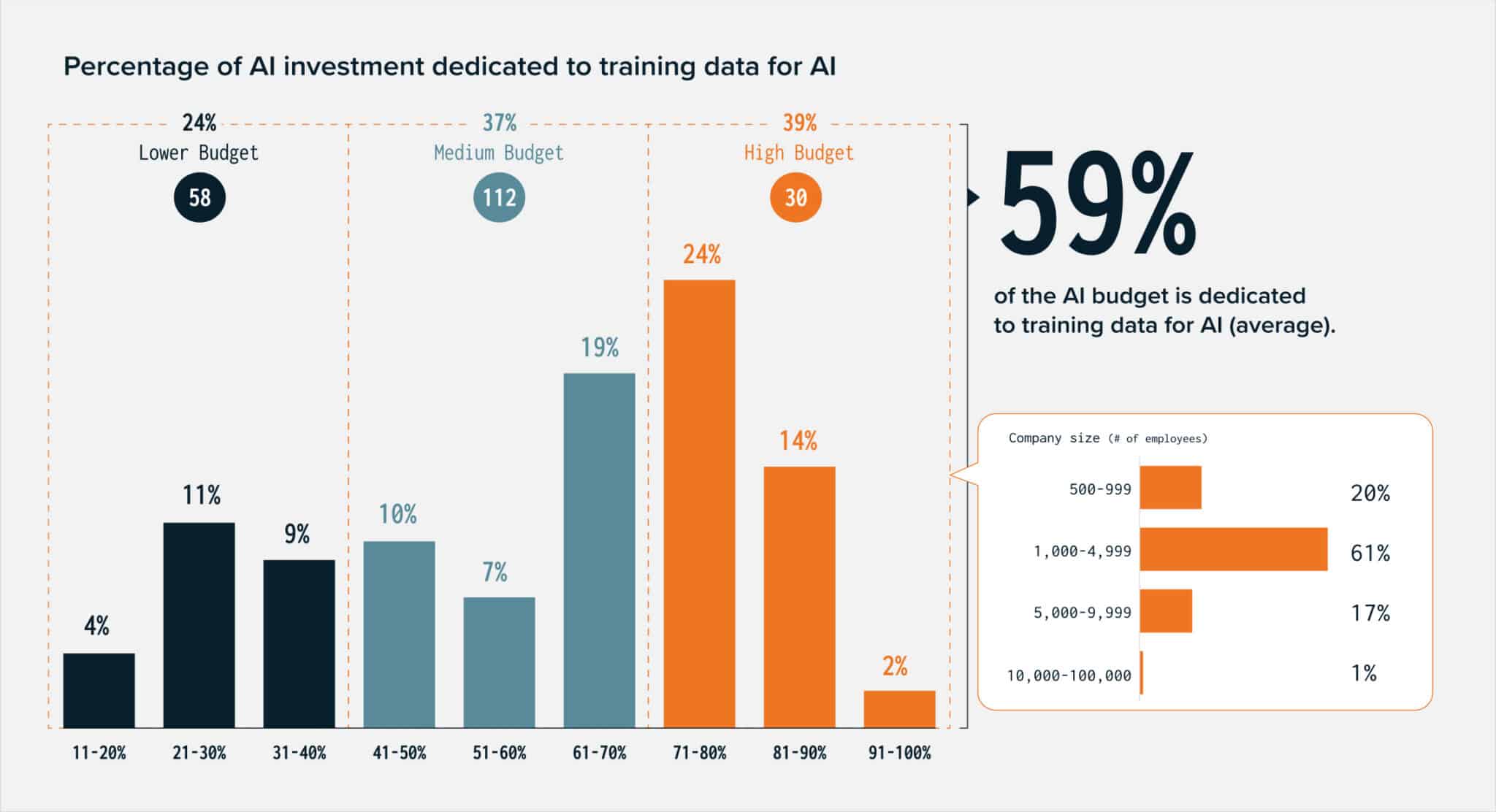
Organizations across industries are accelerating their digital transformation initiatives to stay competitive and are using AI to achieve this goal. Coupled with this is the expected growth in demand for training data; two-thirds of those surveyed indicated that their need for training data will increase over the next five years.
A deeper look into the results shows that organizations that have reached the highest level of maturity indicate the strongest need to increase their training data volumes over this time period. As companies deploy more AI models across an increasing number of functions and processes, more training data is needed to support periodic model updates.
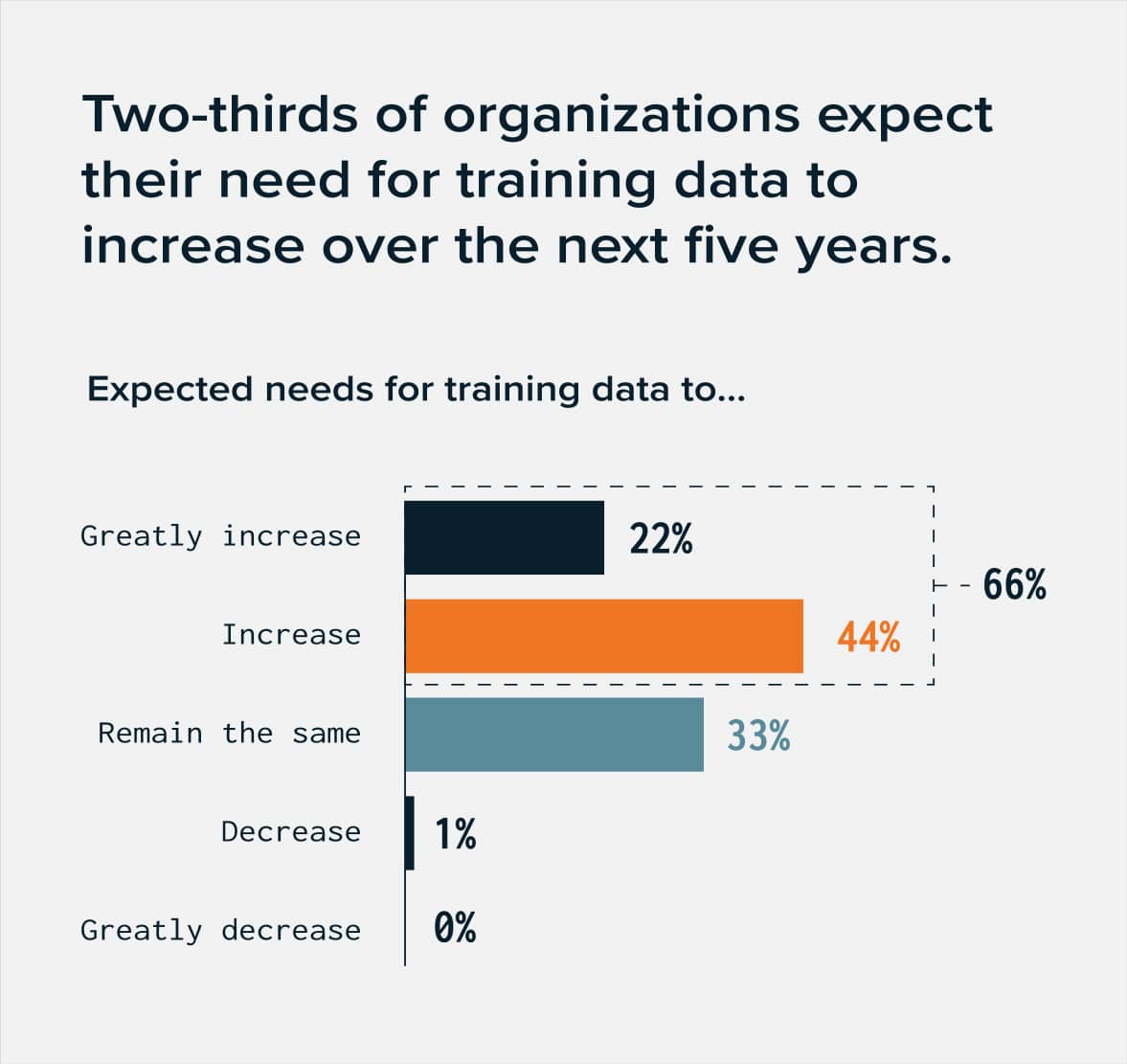
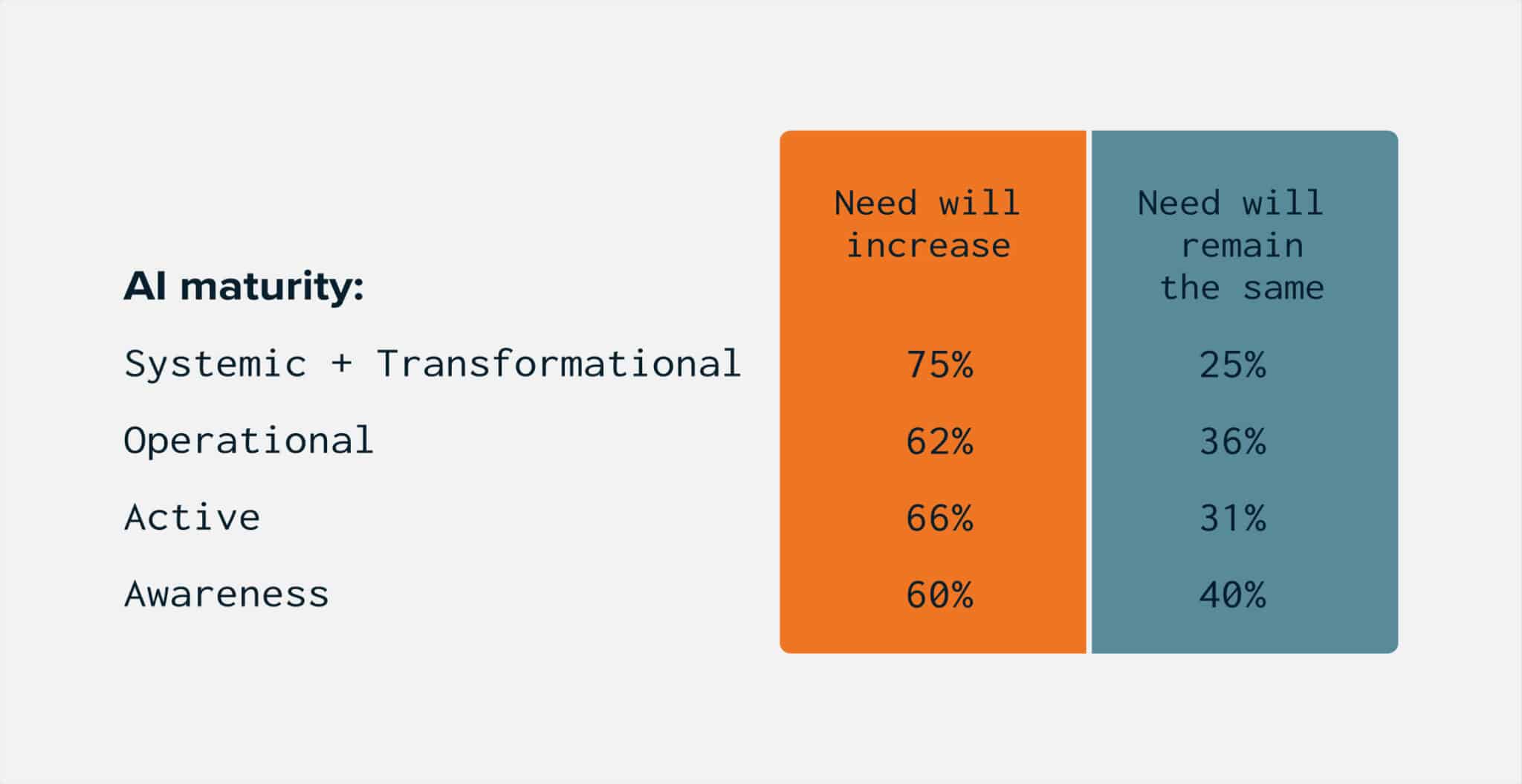
Return on investment for quality training data
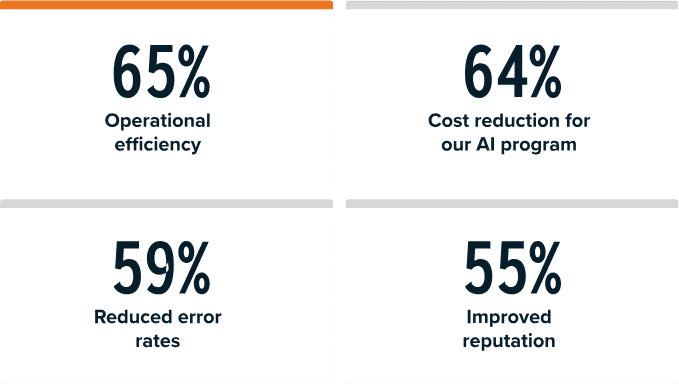
01 Operational efficiency (65%)
02 Cost reduction for our Al program (64%)
"AI training data has added a lot more productivity and efficiency — and considerably reduced costs."
03 Reduced error rates (59%)
"We have seen the AI beginning to make more reasonable and rational decisions as we progress. It is incredibly interesting to see it learn as more data comes in for it to process. At the beginning there was too much risk of it misinterpreting."
04 Improved reputation (55%)
Training data ROI by maturity phase
Companies that are starting out in their AI journey need to create a strong foundation for AI which leads them to focus on cost and error rate reduction. These companies need to prove to senior management that AI is a worthy investment. As they mature, the ROI shifts to operational efficiency and business transformation.
This illustrates that as a business grows more familiar with AI and has AI systems in place, the cost-saving benefits of AI become secondary to (or perhaps are a guaranteed result of) more efficient, applicable, and scalable AI models. While cost reduction is an important ROI measurement as companies reach the highest levels of AI maturity, the other ROI measurements of operational efficiency, reduction in error rates, and improved reputation increase in importance.
Q19. What is the ROI for quality training data for AI? n=200
Q7. Looking at the Gartner AI Maturity Model diagram below, at what level of AI maturity is your organization today? n=200
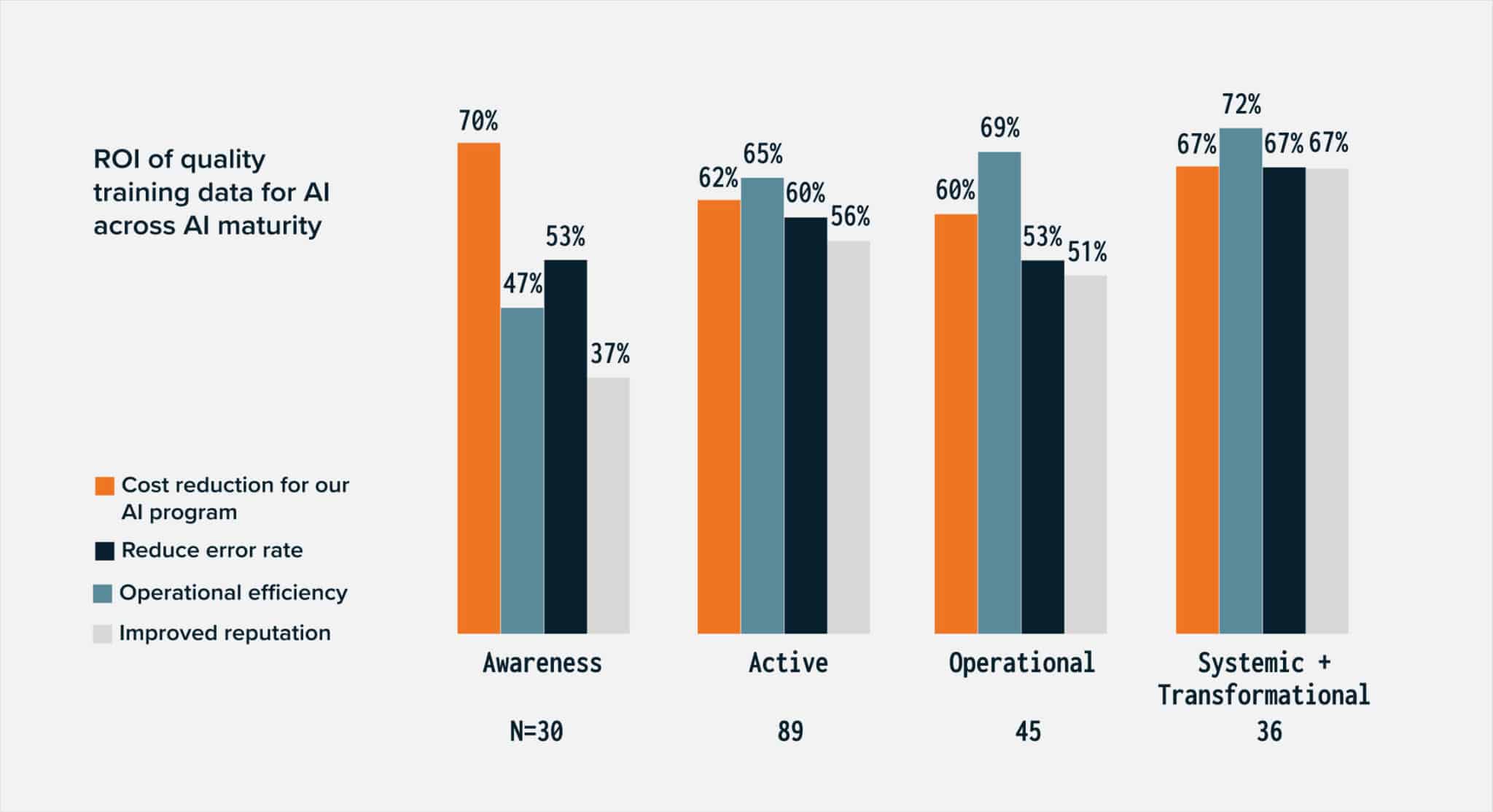
Sourcing high-quality training data
Trust
Reach
Enterprises also want to expand globally to capture more market share. This requires a partner that can provide them access to new markets. They rely on their third-party data partners to provide the proper scope of training data for their AI models in terms of language coverage and in-country experience in a wide range of locales.
This point is important, as it shows that businesses are aware of the fact that training data is not something they can readily engineer on their own.
Longer strategic partnerships
Lastly, these businesses are looking for a long-term partnership with a third-party vendor. The vendor is not just a supplier of training data, but a key collaborator in the development of their AI systems.
This paints a picture of a third-party vendor that is experienced, trustworthy, able to meet the required scope of the project, and one that can support the long-term requirements of a more robust program.
The survey results show that cost is a less important factor versus the aforementioned motivations. This further underscores the finding that training data is a highly valuable asset — one that’s worth investing in to get the highest quality
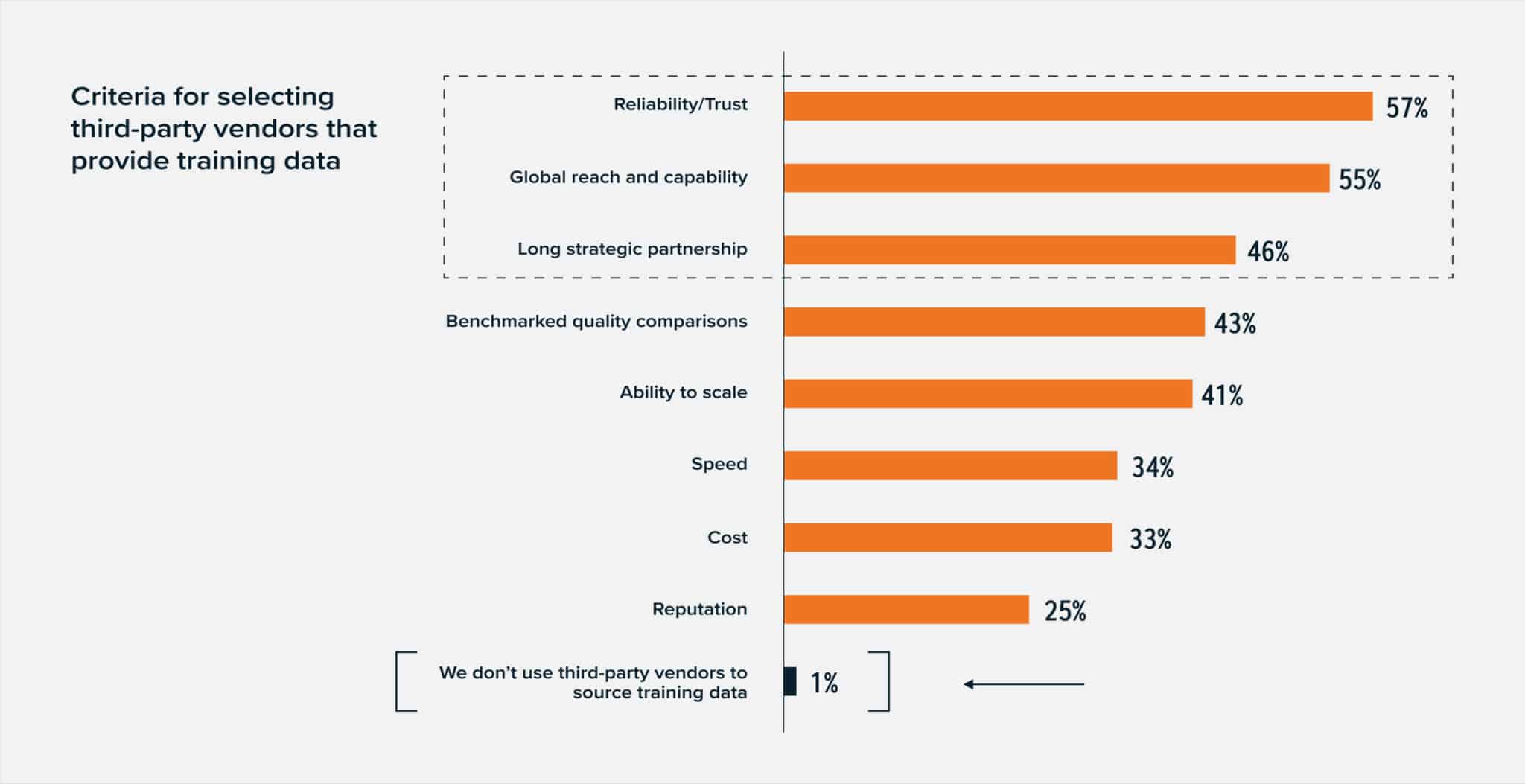
Speed
When the survey responses were reviewed by maturity level, the results showed that mature organizations particularly value execution speed. Examining the chart below shows that while a data partner’s speed is of much lesser importance in the early stages of the AI journey, this changes dramatically once companies reach the higher stages of maturity. Companies at this stage are deploying AI across an entire business process - or across their entire company - and are looking for reliable partners who can deliver training data quickly to help them accomplish their goals.
Finally, when reviewing the data by maturity level, we see that companies that have reached the highest levels of maturity all rely on a data partner to support their AI initiatives.
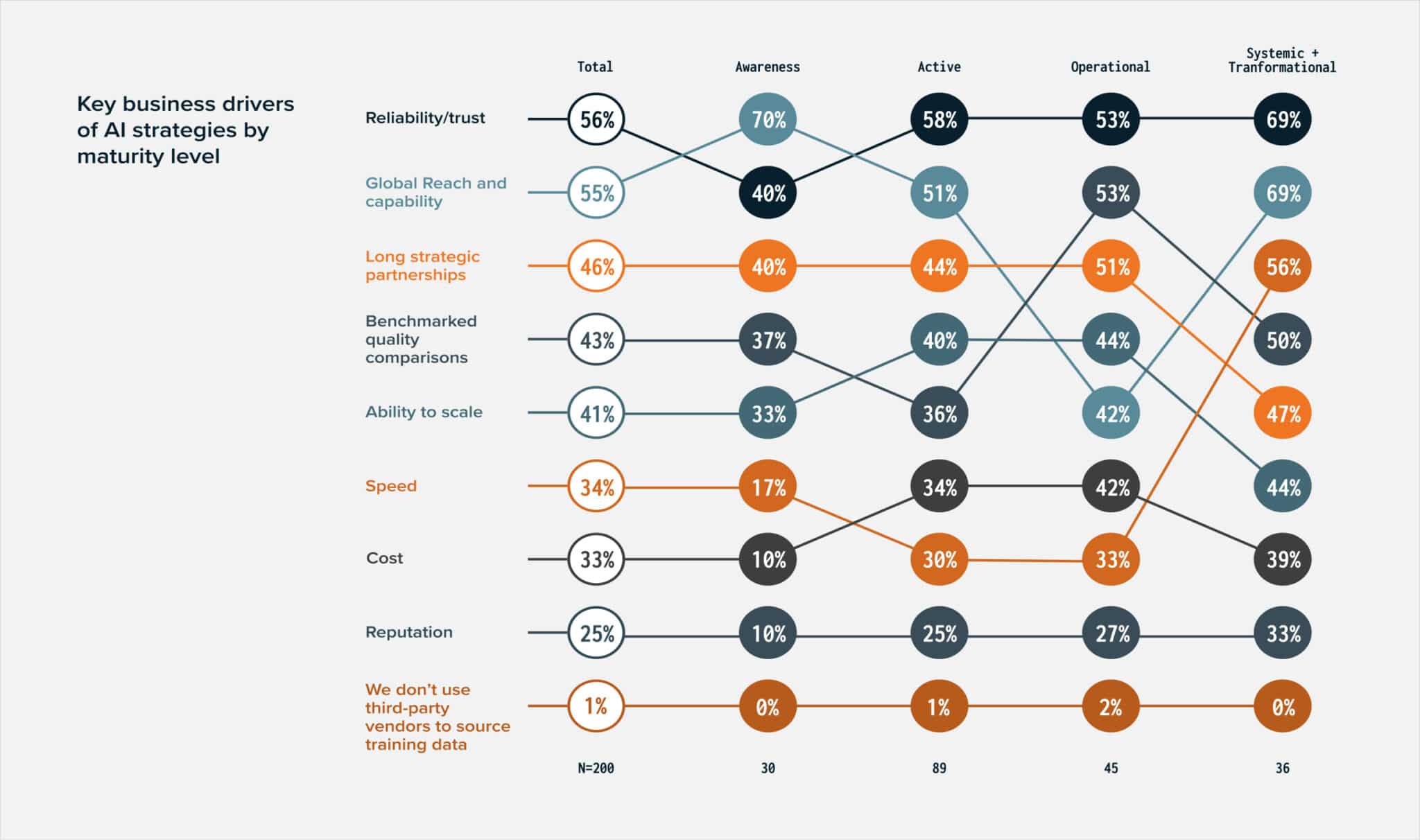
Conclusion
Behind the research
About LXT
LXT is an emerging leader in AI training data to power intelligent technology for global organizations. In partnership with an international network of contributors, LXT collects and annotates data across multiple modalities with the speed, scale, and agility required by the enterprise. Our global expertise spans more than 145 countries and over 1000 languages. Founded in 2010, LXT is headquartered in Toronto, Canada with presence in the United States, UK, Egypt, India, Turkey and Australia. The company serves customers in North America, Europe, Asia Pacific and the Middle East.
To learn more about LXT, visit lxt.ai.
